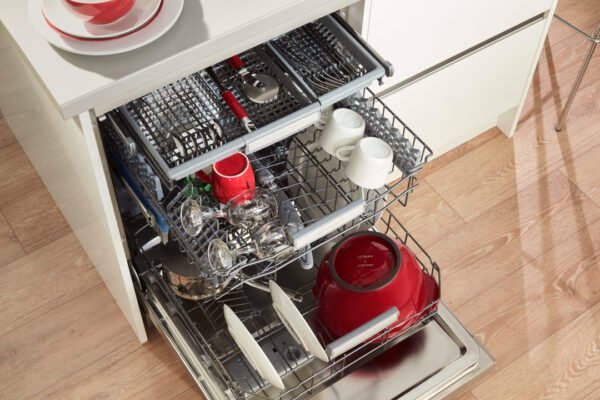Why Is My Dishwasher Not Getting Hot?

When your dishwasher finishes a cycle, but your plates still feel chilly and look dirty, it’s natural to question whether the appliance is heating properly. Several issues could be behind the lack of heat, and identifying the right one is key to restoring its performance.
1. Busted Thermostat
The thermostat in your dishwasher plays a key role in regulating water temperature. If it malfunctions, it might falsely detect the water as being hotter than it is. As a result, the dishwasher may operate with cooler water than needed, which can lead to poorly cleaned dishes.
How to Fix It
Figuring out if the thermostat is causing the issue usually involves specific diagnostic equipment. To avoid guesswork, it’s a smart move to call in an SD Appliance Repair technician who can accurately test the part and swap it out if necessary.
2. Faulty Heating Element
The heating element is what brings the water in your dishwasher up to the right temperature, while the thermostat just monitors it. If the element fails, the water won’t heat properly. You’ll usually find this component near the base of the unit, and in some cases, damage like cracks or burn marks might be visible.
How to Fix It
If the heating element turns out to be the issue, replacing it is often the most effective fix. An appliance specialist can examine it for visible wear or defects and run tests to confirm it’s not functioning correctly. If it’s damaged, they’ll install a new one to restore proper heating.
3. Your Hot Water Heater Is Broken
Although today’s dishwashers are built to raise water temperature on their own, they don’t begin with cold water. They usually draw from your household’s hot water supply, ideally entering the machine at 120°F or warmer. If your water heater isn’t performing well, the dishwasher might struggle to compensate for the lower starting temperature. As a result, your dishes may come out less clean. Signs of a struggling water heater typically appear in other areas of the home as well, not just in the kitchen.
How to Fix It
Sometimes, the solution to your water heater troubles is surprisingly easy—like realizing the thermostat was set to a low or “vacation” setting before time away from home. A quick adjustment might bring the hot water back to normal. However, if the cause isn’t obvious, it’s wise to call in a plumbing expert who handles water heaters. They can assess the situation thoroughly and handle any needed repairs or a full replacement if necessary.
Signs of Hot Water Problems With Your Dishwasher
If your dishwasher isn’t reaching the right temperature, you’ll notice it in the results—plates and glasses will come out still coated in food residue and grease. Heat is essential for breaking down grime and activating the detergent. When the water stays too cool, detergent pods or powder might not fully dissolve, leaving behind a gritty or chalky mess.
When to Call a Pro
Because repairing components like the thermostat or heating element usually requires technical tools and involves working with electrical parts, it’s often safest to leave the job to an experienced SD Appliance Repair technician. If it seems like the issue might be tied to your home’s water heater instead, bringing in a licensed plumber is a smart move. They’ll be able to assess the heater, carry out any needed maintenance, and advise you if it’s time for an upgrade based on its condition and age.
You Appliance Will Be Fixed!
in San Diego, CA
REQUEST SERVICE
Book a Repair Appointment

